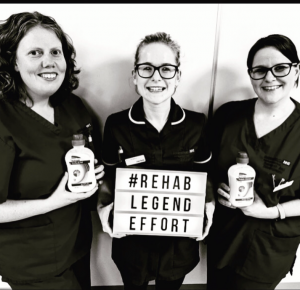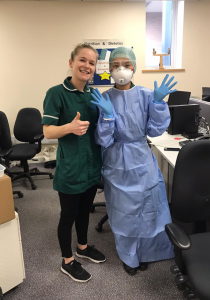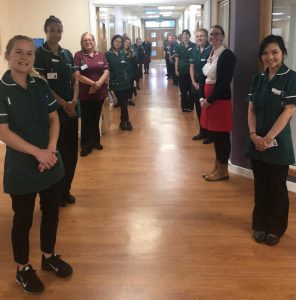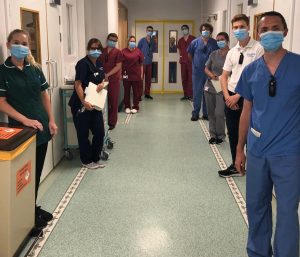
I’ve been working as a dietitian for the past seven years and started working in the QE in September last year as a Critical Care and Gynaeoncology Dietitian.
It’s something I’ve always wanted to do and when I was younger I loved learning about nutrition and its impact on health. My Home Economics teacher in school directed me towards a career as a dietitian.
These have been far from typical times but in a normal day I’d be assessing, treating and monitoring patients as well as providing oral, enteral (tube feeding) and parenteral nutrition plans (providing nutrition into a vein).

However the start of the pandemic really changed my day to day role, especially since I work a lot on intensive care.
For a start I had to dress in full Personal Protective Equipment (PPE) to complete assessments on critical care and we moved to seven day working patterns to cope with the hugely increased numbers of patients.
The caseload was also much more complex than usual and all our usual outpatient and regular work was paused to help us cope with Covid-19.
As part of our organisations response to the pandemic the dietetic department divided into COVID and non-COVID teams to reduce spread of the virus throughout the hospital. Other members of the dietetic department were upskilled and assisted on critical care.

Nutrition also plays a huge role in recovering from Covid because it helps the body fight the infection while helping with physical strength and rehabilitation. One of the biggest things we need to do is prevent malnutrition and muscle wastage
The biggest challenge to me personally was wearing full PPE because it was uncomfortable and claustrophobic. Because of the complexity of the patients’ needs I was also frequently altering nutrition plans and studying the changes in evidence around the best way to support people in the unit.
Of course like everyone else I felt that background fear and uncertainty about the disease. However the thing I’ll remember most about this time is how well everyone worked together and supported each other.

I am extremely proud to be part of the Critical Care Department as well as the Nutrition and Dietetic Department at the Queen Elizabeth Hospital.